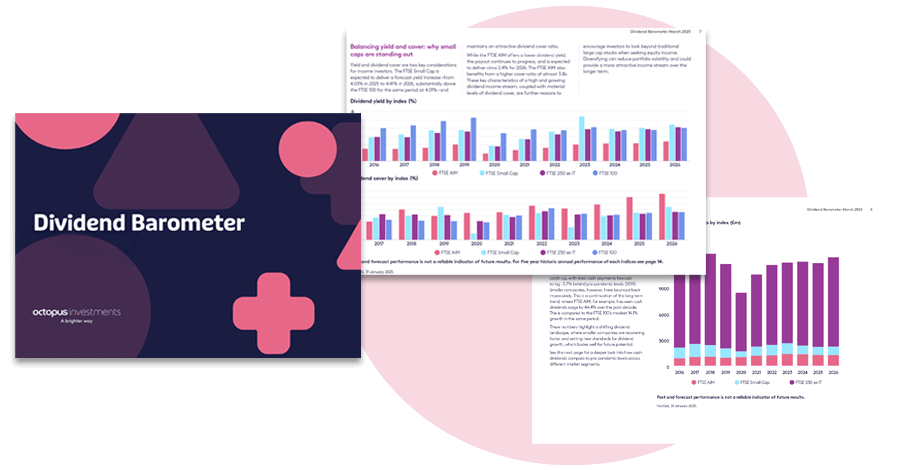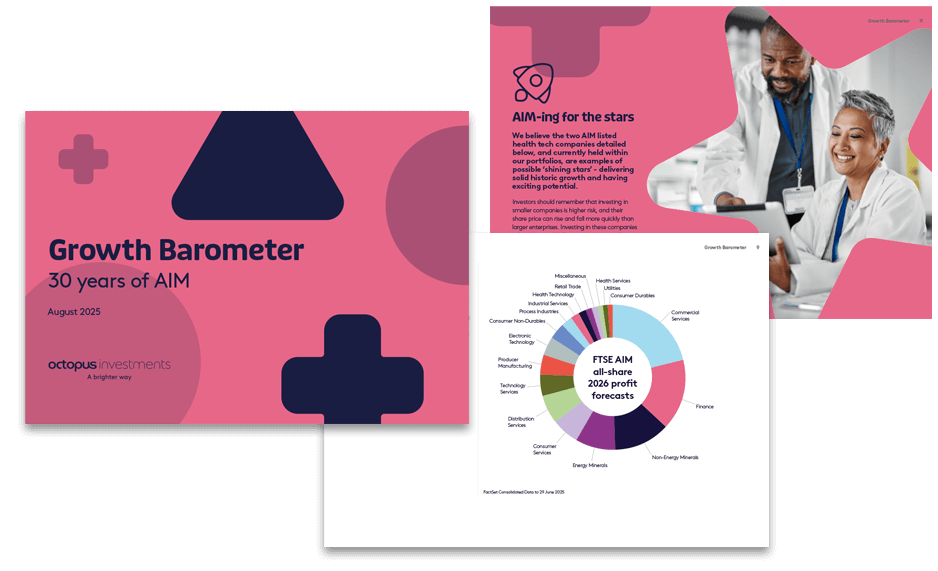Helping clients act now for effective estate planning
Mounting speculation and headlines in the run up to an Autumn Budget are nothing new. Yet this year, the estate planning landscape feels different. Despite the direction of travel for inheritance tax (IHT) being set, many clients and advisers remain hesitant to act. The cost is clear – another valuable year for effective estate planning has already slipped by.
At the same time, some clients are beginning to act hastily, taking pre-emptive steps based on Budget rumours. It’s a pattern that highlights how speculation can lead to opposing behaviours – hesitation on one side and impulsive actions on the other – both of which risk undermining long-term planning opportunities. The key takeaway is that acting, or not acting, out of fear is not the same as acting with purpose. Robust, proactive estate planning keeps clients focused on long-term goals, ensuring decisions are driven by strategy rather than political noise.
At Octopus Investments, we’ve been helping advisers cut through the noise and act with confidence. From understanding the upcoming changes to the IHT landscape to identifying opportunities to restore tax efficiency, we’ve supported advice firms across the country to move clients forward. Here, we set out what’s known, the true cost of delay, and the practical steps advisers can take now.
Planning around what we already know
It is important to remember that the government’s intentions for IHT on pensions were confirmed earlier this summer when the government released its draft legislation. This reaffirmed that most unspent pension funds will form part of an individual’s estate for IHT purposes from 6 April 2027.
The draft legislation also clarified some key exemptions and included important administrative revisions from the initial Autumn 2024 Budget announcement. This included confirmation that personal representatives, not pension providers, will be responsible for settling any IHT liability.
These changes – alongside frozen IHT thresholds until April 2030 and rising asset values – mean that more clients than ever will fall within the IHT net.
In the below example, we demonstrate the seismic increase in IHT once pensions come into scope for a model client, Sarah pre and post April 2027.
IHT Pension Budget impact Pre and Post April 2027
Sarah is 66 and is widowed.
She has an estate worth £2,450,000.
This is made up of:
- House – £600k
- General investment account (GIA) – £450k
- ISA non-BR qualifying – £500k
- Defined contribution pension – £900k
| Pre 2027 | Post 2027 | |
|---|---|---|
| Estate | £2.45m | £2.45m |
| Less pension | (£900k) | n/a |
| Less RNRB and NRB | (£1m) | (£775k) |
| Remaining | £550k | £1.68m |
| IHT @ 40% | £220k | £670k |
| NRB and transferable NRB | £650k | £650k |
| RNRB and transferable RNRB | £350k | £125k* |
*RNRB £2m estate tapering applies
What’s next?
With the old adage of “touch pensions last” now turned on its head, many advisers are revisiting client strategies, exploring options such as gifting, life insurance plans, and other estate planning tools. At the same time, complementary strategies like Business Relief (BR) are gaining noticeable traction. For suitable investors comfortable with higher-risk investments, BR-qualifying assets allow clients to retain access and control of their assets while keeping them IHT-efficient, provided the shares are held for at least two years.
From 6 April 2026, new rules will introduce a £1 million allowance attracting 100% relief from IHT for unquoted business and agricultural property relief, and this change is already shaping adviser behaviour. Values above £1 million will attract half the level of IHT relief.
Our research found that 50% of surveyed advisers are likely to make use of this new BR allowance, signalling that BR is no longer seen as a niche tool, but as an increasingly mainstream part of estate planning strategies1 .
The cost of delay
In estate planning, every year counts. Waiting to act can mean missed opportunities to maximise tax efficiency and structure wealth transfer effectively for loved ones.
For example, each year of delay in IHT planning can push back seven-year gifting windows or postpone the start of the qualification period for BR investments. Furthermore, it’s been confirmed that the new £1 million BR allowance will reset every 7 years, meaning those who act more decisively may benefit from opportunities to access a refreshed allowance.
Starting estate planning conversations early allows advisers to help clients navigate the changes, establish resilient long-term plans, and deepen client relationships. This ensures clients are well-positioned ahead of the new rules, rather than reacting once they begin to materially affect estates.
Available options to restore tax-efficiency for tax-free cash withdrawals
Ahead of recent Budgets, there’s been a surge in pension savers taking their 25% tax-free lump sum, often acting on speculation2 . Some even tried to rely on 30-day cooling-off periods to reverse the withdrawal if rules didn’t change. However, HMRC and the FCA has since made it clear that once tax-free cash is taken, it cannot be undone. These cancellation windows do not carry any tax exemptions, meaning withdrawals are final for tax purposes.
While acting on rumours is never advisable, some clients who have already withdrawn tax-free cash may now be sitting on excess funds. It’s also worth recognising that others have withdrawn tax-free cash as part of a well-considered financial plan, using it as tactical first step to re-establish a part of their pension pot as IHT-efficient. For both these groups of individuals, there are ways to restore tax efficiency outside of the pension wrapper and re-investment of withdrawals into BR-qualifying assets could be a good solution. This underscores the flexibility of BR in accommodating a range of client objectives. If you’d be interested in learning more about who these investments could be suitable for, we have a wide range of planning scenarios available.
Support from Octopus Investments
The tax planning landscape has become increasingly complex, that’s why it’s so important to lean on specialist support. At Octopus Investments, we’re dedicated to helping advisers navigate these shifts with clarity and confidence.
Join our upcoming post-Budget webinar, where the team will unpack any new changes impacting client’s tax and estate planning, explore planning opportunities, and address the most asked questions. Over 1000 advisers joined our Budget webinar last year – so don’t miss out on this one.
Breakfast & Budget Webinar
Join Erin Platts, CEO of Octopus Investments and our in-house team of experts as they share key insights and practical strategies to help you support your clients with confidence.
Coffee is on us – register now!

Risks to bear in mind
- BR Investments are high-risk investment. The value, and any income from it, can fall as well as rise. Investors may not get back the full amount they invest.
- Tax treatment depends on individual circumstances and tax rules could change in the future.
- Tax relief depends on portfolio companies maintaining their qualifying status.
1 Based on a survey of 195 UK IFAs, Octopus Investments, September 2025
2 HMRC responds to surge in pension withdrawals with cautionary warning, The Private Office, October 2025











